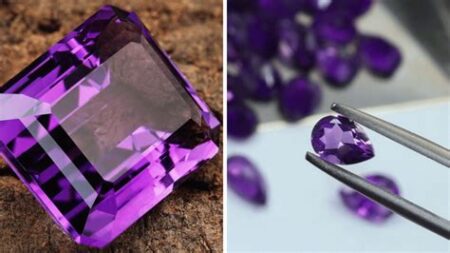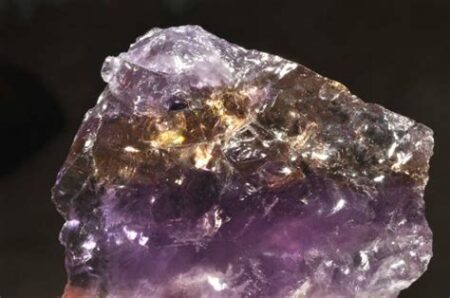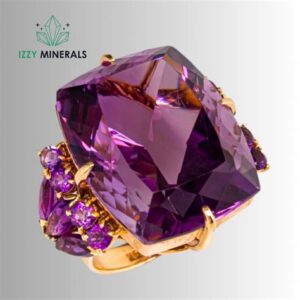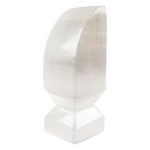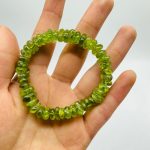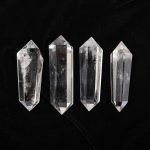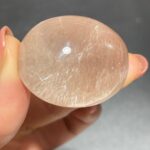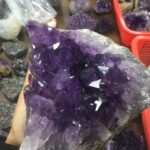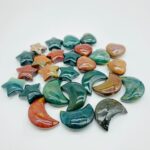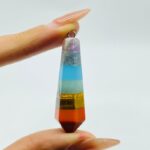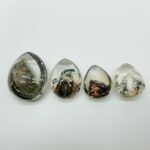Celestite is a strontium sulfate mineral that typically forms in sedimentary rocks. It is named for its light blue color, which is caused by the presence of trace amounts of iron. Celestite can also be found in white, gray, or brown.

Physical Properties of Celestite
Celestite is a relatively soft mineral, with a Mohs hardness of 3 to 3.5. It has a specific gravity of 3.95 to 4.00. Celestite is transparent to translucent and has a vitreous luster.
Chemical Composition of Celestite
Celestite is composed of strontium sulfate (SrSO4). It can also contain trace amounts of other elements, such as iron, manganese, and calcium.
Color of Celestite
Celestite is typically light blue in color. The blue color is caused by the presence of trace amounts of iron. Celestite can also be found in white, gray, or brown.
The color of celestite can vary depending on the amount of iron present. Celestite with a high iron content will be darker blue, while celestite with a low iron content will be lighter blue.
Uses of Celestite
Celestite is primarily used as a source of strontium. Strontium is used in a variety of applications, including:
- Pyrotechnics
- Glassmaking
- Ceramics
- Electronics
- Medicine
Celestite is also used as a collector’s mineral. It is a popular mineral for collectors because of its beautiful blue color.
Sources of Celestite
Celestite is found in sedimentary rocks around the world. The largest deposits of celestite are found in the United States, Mexico, and Spain.
Environmental Impact of Celestite Mining
The mining of celestite can have a negative impact on the environment. The mining process can release dust and other pollutants into the air. The mining process can also damage the land and water resources in the area.
Conclusion
Celestite is a beautiful mineral with a variety of uses. It is important to be aware of the environmental impact of celestite mining before making a decision about whether or not to purchase celestite products.
Frequently Asked Questions
What is the most common color of celestite?
Light blue
What causes the blue color of celestite?
Trace amounts of iron
What are the other colors that celestite can be found in?
White, gray, brown
What is celestite used for?
A source of strontium, which is used in a variety of applications, including pyrotechnics, glassmaking, ceramics, electronics, and medicine
Where is celestite found?
Sedimentary rocks around the world, with the largest deposits in the United States, Mexico, and Spain
What is the environmental impact of celestite mining?
The mining process can release dust and other pollutants into the air and damage the land and water resources in the area

